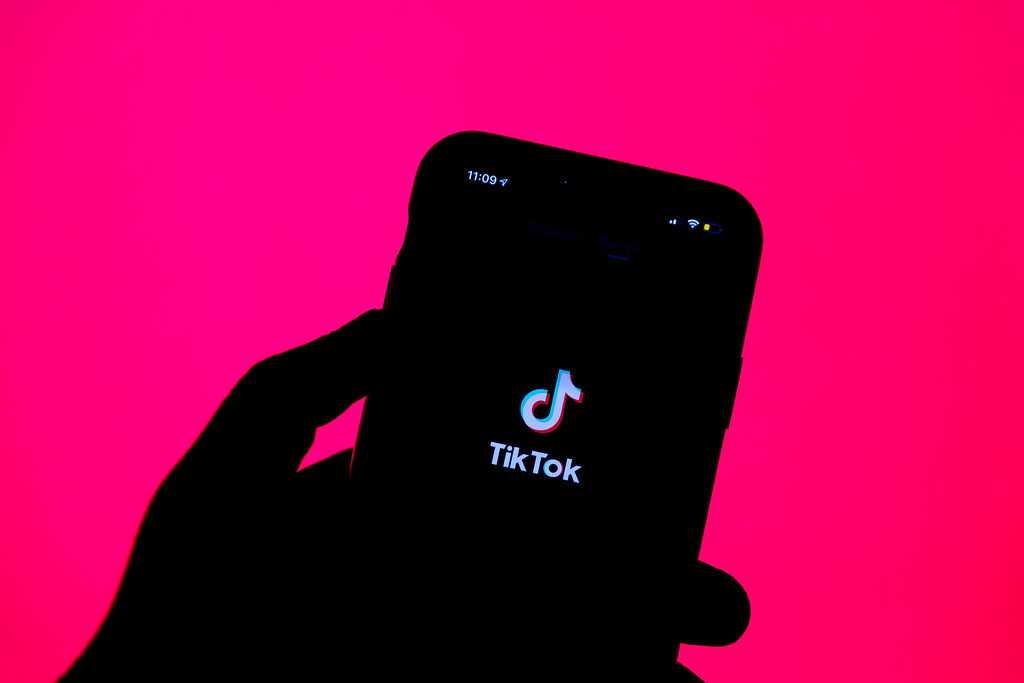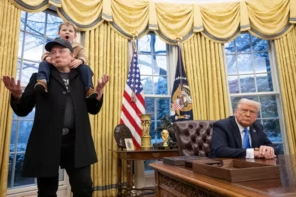I hate TikTok. From its viral dances to its eerily accurate algorithm, the app is everything that I despise about social media rolled into one highly-addictive platform. Yet, when Donald Trump proposed banning the app, I felt myself disagree with this potentially slippery move that dangerously blurs the lines between politics and business.
As US-China relations have suffered from competitions over 5G, AI, and the loss of Hong Kong’s special status rights, TikTok has emerged as a new battleground for allegations of espionage. For those who are not familiar, TikTok is a Beijing-based social network in which users produce short videos of lip-syncing, dancing, and comedy. With over one billion active users, the app is especially popular with teenagers.
TikTok has emerged as a new battleground for allegations of espionage.
While TikTok may seem innocent at first glance, there are increasing suspicions that the Chinese government is using the app to spy on its Western users. TikTok is able to aggregate information such as a user’s location, image, and other data. As tensions over the app have mounted, TikTok has tried to Americanize itself by hiring more American staff and naming a former Disney executive as its CEO. Despite these efforts, several branches of the US military, the Department of Homeland Security, companies such as Wells Fargo, and India have banned the app over privacy and security concerns.
These concerns are legitimate. The world has become increasingly connected through social media. While many users share their personal information online, tech companies have failed to be transparent as to how they use this data. At a time when US-China relations are at a low, it seems rational to take extra precautions when it comes to the spread of personal data.
Unfortunately, the Trump administration’s approach to this situation is questionable at best. On August 7, Trump issued an executive order that would ban TikTok and WeChat if they failed to be sold by their Chinese-based companies within 45 days. Microsoft recently pushed forward to buy TikTok. When Microsoft introduced a deal to buy the app, Trump declared that the US government should be given a “substantial amount of money” (due to the fact that he believes his administration is the one making the deal happen, and that the deal would present as a “landlord-tenant” relationship.
His belief that he can crush foreign enemies by buying out their businesses is a skewed way to approach international relations. Not only does this tactic fail to get to the root of issues, it also allows his fear-mongering nationalist rhetoric to flourish.
Trump’s remark is not surprising. The U.S. President often struggles to separate politics from business; he seems to believe that successful governing is based solely on how strong the stock market is (even when the United States has by far the highest COVID-19 cases and deaths, much of it due to Trump’s inadequateness). If Trump’s “reimbursement” is approved, it sets a dangerous precedent that will hurt foreign businesses, and in turn, international relations. His belief that he can crush foreign enemies by buying out their businesses is a skewed way to approach international relations. Not only does this tactic fail to get to the root of issues, it also allows his fear-mongering nationalist rhetoric to flourish.
Regardless of Trump’s knowledge (or lack thereof) of government and economics, the proposed TikTok ban is simply a way for the President to bolster nationalist sentiment through his anti-China actions. While it is not unreasonable to be concerned about China’s growth, Trump’s anti-China claims have gone so far as to even declare false information about major issues such as climate change and enacting tariffs and sanctions that, in reality, hurt Americans.
Although the Chinese government is guilty of its own corruption and unethical policies, banning a social media app like TikTok or WeChat is not an effective way for the U.S. to stand its ground against China. While Trump can claim that banning TikTok will protect Americans’ privacy and government information from being breached, doing so will set major precedence surrounding how social media and the internet in general will be regulated. Once seen as a way to simply connect with friends and family, social media has expanded to be somewhat of a miniature version of the internet within the internet. One of the most important features of social media that has emerged in the last few years is the rise of news not only from established sources, but from regular people themselves. Without these platforms, political and social movements would not have garnered as much support. These grassroots methods threaten governments such as China’s, who use censorship as a way to control their citizens. In America’s case, censoring social media could allow the government to monitor and block information that would have otherwise been available to the public. This would limit social and political discourse, and runs contrary to the foundational values of the United States.
At the same time that the TikTok debate has arisen, American tech companies (e.g., Facebook) have continued to collect user data and sell it to third parties (some of which, interestingly, are in China). Data leaks can occur on every platform in every country. The Facebook-Cambridge Analytical scandal was the largest leak in Facebook’s history and involved a third party using user data to heavily influence the 2016 election. Even if Trump banned TikTok, China has the ability to make a deal with any other social media platform to retrieve user information.
This would limit social and political discourse, and runs contrary to the foundational values of the United States.
This whole situation sheds light on the dangers of how Trump believes the internet should be regulated. This issue is akin to the mythological Hydra monster: if one of the Hydra’s heads was beheaded, two more would re-emerge. Once one social media platform is banned, not only will another one take its place, but other problems regarding the future of tech regulation will appear as well. If Trump bans TikTok, Facebook’s Reels will take over, further adding onto the social media giant’s monopoly.
But more importantly, it will be the start of America’s own Great Firewall—the Chinese government’s massive internet censorship actions. Ironically, instead of fighting against China, Trump is simply mirroring his enemies by creating his own wall.








